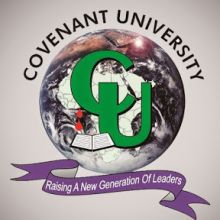About Rhode Island College
Rhode Island College (RIC) was founded in 1854 as the Rhode Island State Normal School in order to prepare teachers to educate the state’s young people. The school attracted people from a wide range of backgrounds who wished to become teachers. The school closed for a brief period between 1865 and 1871 when the Rhode Island General Assembly decided to give $10,000 to re-open the school in the state capital of Providence. The school reopened as the Rhode Island Normal School and began to prosper, moving to a specially constructed building in 1898. In 1920 the name was changed again to Rhode Island College of Education and the college began awarding bachelor’s degrees for completion of a four-year study program and the first postgraduate master’s degrees were awarded in 1924. The college moved to its current campus in 1958 and changed its name to Rhode Island College in 1959 to reflect the broadening of the curriculum from teacher training to a wider range of academic courses.
Today RIC is a thriving coeducational, state-supported college with over 9,000 students studying a wide range of undergraduate and postgraduate qualifications. There are in the region of 90 undergraduate programs and 30 graduate programs on offer across the college’s five divisions: The Faculty of Arts and Sciences, the Feinstein School of Education and Human Development, the School of Management, the School of Nursing, and the School of Social Work.
The College’s Mount Pleasant campus covers 180 acres and allows easy access to the city while retaining a peaceful, green character. As well as the college’s main academic and residential buildings the campus also has sports and leisure facilities and the student’s union contains a bank, post office, bookshop, café and ballroom.
Explore these featured universities
Explore rankings data for Rhode Island College
Key statistics
- $23,043Out-of-state Tuition and Fees(1)
- $40,033Salary after 10 years(1)
- $12,394On-campus Room and Board(1)
Subjects taught at Rhode Island College
Business & economics
- Accounting & Finance
- Business & Management
- Economics & Econometrics
Arts & humanities
- Archaeology
- Art, Performing Arts & Design
- History, Philosophy & Theology
- Languages, Literature & Linguistics
Life sciences
- Biological Sciences
Physical sciences
- Chemistry
- Mathematics & Statistics
- Physics & Astronomy
Social sciences
- Communication & Media Studies
- Geography
- Politics & International Studies (incl Development Studies)
- Sociology
Computer science
- Computer Science
Education
- Education
Engineering & technology
- General Engineering
Law
- Law
Clinical, pre-clinical & health
- Other Health
Psychology
- Psychology






